Can dogs eat Pop-Tarts? Pop-Tarts are designed for human consumption, but our canine companions often have a penchant for indulging in our food rather than sticking to their own. However, concerns may arise regarding potential side effects on dogs due to certain ingredients.
Personally, I enjoy eating Pop-Tarts during midnight cravings. Typically, I store them in my kitchen cabinet, but a couple of months ago, I inadvertently left them out on the counter. Upon waking from a sweet slumber, I discovered the entire box empty, sparking suspicion and prompting a thorough investigation. After careful analysis, I concluded that my dog had devoured them. The worry over their suitability for my dog overshadowed my love for Pop-Tarts.
Indeed, consuming Pop-Tarts can have adverse effects on a dog’s health if ingested in large quantities. Let’s delve into the potential benefits and drawbacks of feeding Pop-Tarts to dogs together.
What Are Pop Tarts?
Pop tart is something eaten in almost every house of united states. It is easily available in grocery stores and supermarkets. Pop tarts are rectangular shaped crackers available in different sugary fillings. They come in different flavors. Here are they listed below:
- Strawberry pop tarts
- Blueberry pop tarts
- Chocolate pop tarts
- Cinnamon pop tarts

They are equally famous among every age group. Mostly children enjoy them as their afternoon snacks and adult prefer having them along a cup of tea in evening. I love eating them when suffering to night cravings. The balanced sugary fillings sweeten the mouth and changes the mood.
What Are Pop Tarts Made Of?
Although it is consumed a lot in united states and Canada however a number of people are not aware of the exact ingredients used in it. Many people keep raising the question what are pop tarts made of? They wonder about the ingredients used but couldn’t find an answer. Here I have listed all the ingredients used in making of pop tarts since it is necessary to know about ingredients used in any eatable before feeding it to their pet.
Following ingredients are used in making pop tarts:
- Enriched flour
- Corn syrup
- High fructose corn syrup
- Dextrose
- Soybean and palm oil
- Sugar
- Salt
- Citric acid
- Gelatin
- Artificial colors
- Modifies corn starch / modified wheat starch / cornstarch
If your dog gets attracted to pop tarts, you can buy pop tart toys for your dog at the cheapest rates by visiting the link below or by clicking the image below:

However, the use of these ingredients might vary from flavor to flavor. There quantity also varies with flavor. You may get to know about exact ingredients used on reviewing the packet. It is essential to get aware with the ingredients utilized before feeding it to your canine companion.
Can Dogs Eat Pop Tarts?
Dogs are actually classified as omnivores, despite their close relation to wolves. Dogs can thrive on a diet that includes both animal and plant-based foods. Their digestive system has adapted to efficiently process both protein from meat and carbohydrates and other nutrients found in fruits and vegetables. This nature of dogs makes pop tarts an unfit treat for them.
Feeding Pop-Tarts or similar sugary pastries to your dog isn’t a good choice. These treats aren’t healthy for dogs due to their high sugar content and artificial sweeteners and colors, which can trigger serious health issues. If your dog eats such foods a lot, he might get a patient to digestive issues, weight gain and cardiovascular issues.
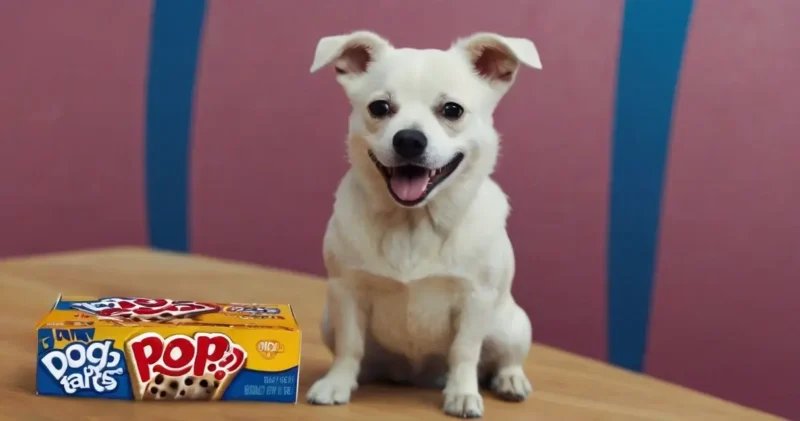
It’s better to opt for dog-specific treats that are comprise ingredients that are safe and good for your dog. There’s a wide variety of dog treats available in pet stores, and they’re a much better option. Always check the ingredients list on dog treats. Don’t hesitate to consult your veterinarian for guidance on what’s safe and appropriate for your specific pet.
Are Pop Tarts Bad For Dogs?
No, it’s not safe to give Pop-Tarts to dogs. Pop-Tarts are sugary and processed pastries, and they contain ingredients that can be harmful to dogs. If dogs eat Pop-Tarts, they could experience
- Dental issues
- Pancreatitis
- Weight gain
- Diabetes
- Gastrointestinal blockages
- Digestive upset.
Don’t give your dog human foods, especially sugary snacks like Pop-Tarts. Instead, pick treats and food made just for dogs. These are made to be good for them
Can Dogs Have Pop Tarts in Different Flavors?
Here there is room for a question since there are multiple flavors of pop tarts, it is a common concern there might be any flavor not possessing harmful impact on dogs. No, its not like you have imagined. All of these flavors possess some common ingredients and also distinguish in some other ingredients too. Here the following table shows the different ingredients used in each flavor and their negative impact on a dog’s health.
| SR.NO | FLAVOR | DISTINGUISHED INGREDIENTS | NEGATIVE IMPACT ON HEALTH |
|---|---|---|---|
| 1. | Can dogs have pop tarts of strawberry flavor? | Strawberry puree concentrate | Dental problems, obesity |
| 2. | Can dogs have pop tarts of blueberry flavor? | Blueberry puree concentrate | Diabetes and rapid change in blood sugar levels |
| 3. | Can dogs have pop tarts of cinnamon flavor? | Cinnamon | Irritates dog’s digestive system |
| 4. | Can dogs have pop tarts of chocolate flavor? | Cocoa (for chocolate flavored varieties) | Vomiting, diarrhea, rapid heart rate |
It’s crucial to remember that even if an ingredient in these pastries isn’t toxic, the overall composition of Pop-Tarts, with their high sugar, fat, and artificial additives, can be harmful to a dog’s health when consumed in significant quantities.
Pop Tarts Contain Sugars That Dogs Can’t Digest
Pop tarts are rich in sugar. They are not only restricted to brown sugar but they contain other types too. Here all of these are addressed below:
- Corn syrup: corn syrup are commonly used as sweeteners in the pastry’s dough and filling.
- Dextrose: This is another form of sugar used in processed foods as a sweetener.
- Glucose: it is a natural sugar and is used in bakery products too.
- Fructose: Fructose is a natural fruit sugar used in fruit-flavored Pop-Tarts.
- Molasses: Molasses is sometimes used for its sweet and slightly caramel-like flavor.
Use of all these kinds of sugars make it toxic for dogs since their body doesn’t require the sugar levels in same amount as human bodies do require. Even using pop tarts in excess can signify many health issues in humans too.
My personal dog was spotted a victim to diarrhea after devouring the whole box in one night. It is better recommended to keep such things away from your dog’s approach.
Your Dog Might be Allergic to Soy Bean And Palm Oil
Many dogs are allergic to soybeans and palm oil. In case, your dog is allergic too, it better to avoid feeding him with pop tarts. Also, they are not healthy oil and rich in fat content. Besides this, here are some oils which might be good for your dog.
- Olive oil
- Coconut oil
- Flaxseed oil
- Fish oil
- Sunflower oil
It’s important to note that not all dogs are allergic to soybean or palm oil, and many commercial dog foods contain these ingredients. However, if you notice any negative health effects in your dog. The commonly observed negative health impacts are digestive upset, allergies, pancreatitis, nutritional imbalance. Excessive use of soybean and palm oil can upset the balance of essential nutrients in a dog’s diet, which might result in deficiency of other necessary nutrients.
Pop Tarts Contain Flour
Wheat flour is a common ingredient you’ll find in many dog foods and treats. It’s a source of carbohydrates, offering our canine companions a handsome amount of energy to stay active. Whole wheat flour also contains fiber, which helps in their digestion and smooths the bowel movement.
But here’s the twist: just like some people are allergic to certain foods, some dogs can be sensitive to wheat. For these pups, munching on wheat flour might lead to skin rashes or an upset stomach. For dogs with known sensitivities or allergies, it’s advisable to choose dog foods and treats made with alternative flours like rice or potato, or specifically formulated for dogs with dietary restrictions.
Pop Tarts Contain Artificial Flavor And Sweeteners
Unlike humans, four legged furry companions are not comfortable with artificial eatables. Nature has designed their infrastructure in a such a way that they extract all necessary nutrient and minerals from their usual diet recommended by vets.

Even they do not require such foods to change their mouth flavor but sometimes we seek help from such foods to cheer their mood up. Since pop treats are not complete without the artificial sweeteners utilized in its manufacturing, they are highly toxic to dogs. It might be a burden on their belly to digest. They trigger the same health issues as stated for sugars.
Feeding dogs with both sugars and artificial sweeteners is highly toxic for them. in some serious cases, situation ends up reaching a point where they have to deal with life threatening issues.
Pop Tarts Contain Excessive Salt
Pop-Tarts contain varying amounts of salt depending on the flavor and variety. The salt content ranges from 150 mg to 200 mg. While these levels might not seem too high for humans, it’s important to consider the fact that dogs do require salt in very minimal quantity.
Devouring more salt can be harmful for dogs. It can trigger several health issues like:
- Increased thirst
- Increased urination
- Kidney issues
- Sodium ion poisoning
Some common symptoms of salt poisoning include vomiting, diarrhea, tremors and seizures. Pop-Tarts have salt in them, and they are sugary and processed. This combination is not good for dogs. It can be a bad and possibly harmful snack for them. It’s better to avoid giving Pop-Tarts to your dog and choose treats made specifically for dogs to keep them healthy and safe. To know more about salt toxicity on dogs, you can click here.
Portion Control of Pop-Tarts for Dogs
Implementing portion control is vital when considering the occasional indulgence of Pop-Tarts for dogs. While Pop-Tarts are not recommended as a regular treat due to their high sugar content and artificial additives, pet owners may occasionally offer small portions as a special treat. However, it’s crucial to limit the amount given to prevent adverse health effects. For example, offering only a small piece or breaking a Pop-Tart into smaller portions can help reduce the overall sugar and calorie intake for the dog. Pet owners should aim to incorporate Pop-Tarts into the dog’s diet sparingly and ensure they constitute only a small fraction of the dog’s daily caloric intake.
Pet owners should also consider the individual factors of their dog, such as size, weight, and activity level, when determining appropriate portion sizes of Pop-Tarts. Smaller breeds may require even smaller portions to avoid excessive calorie intake, while larger breeds may tolerate slightly larger portions. Additionally, monitoring the dog’s reaction to Pop-Tarts, including any signs of digestive upset or allergic reactions, is essential. If any adverse effects are observed, it’s best to discontinue feeding Pop-Tarts altogether and opt for safer, canine-specific treats. Overall, practicing portion control with Pop-Tarts ensures that dogs can enjoy the occasional indulgence without compromising their health and well-being.
Alternatives To Pop Tarts That Your Dog Can Eat
Since pop treats are not good for your dog, I have made research for its alternatives and here are they for your convenience.
- Doggy Treats from the Store: You can buy special dog treats at pet shops or online. They have all sorts of flavors and sizes. These treats are made to be good for your dog and keep them healthy.
- Fruits and Veggies: Some dogs really like fruits and veggies. Things like apples, carrots, and blueberries can be tasty for them. Just be careful to take out any seeds or pits, and don’t give them too much.
- Peanut butter: Dogs often go crazy for peanut butter. You can get peanut butter made just for dogs at pet shops. Or, you can use natural peanut butter without sugar or xylitol.
You can purchase dog food at the cheapest rate by visiting the link below:
What Should I Do If My Dog Ate Pop Tarts?
Here is good news for you. The toxicity of pop treats is limited and in most of the cases, they do not lead to serious health issues. Mostly they end up resulting diarrhea, serios vomiting and lethargy rather than those serious diseases which wouldn’t be solved without surgeries or heavy medicines.
Thus, you have to stay calm and make a visit to your nearest vet as a safe side and for mental satisfaction. Another important measure you have to take is to research for foods which are not suitable for dogs. Make a list of those and place all of them beyond your dog’s approach.
Conclusion
A wise man may have ended up making his decision not to feed pop tarts to dog ever again in life. Above discuss detail justifies the stance that using pop tarts for dogs doesn’t possess any health benefits but encourages different diseases. Here is a recommendation to avoid feeding other sugary products to your dog too.
FREQUENTLY ASKED QUESTIONS
We would be delighted to find you visiting our other articles too. Here are links for a few of them.
Doggy Delight: Can Dogs Eat Rotisserie Chicken? 6 concerns
Unleashing: Can dog eat Banana Peppers -6 Pros and Cons!
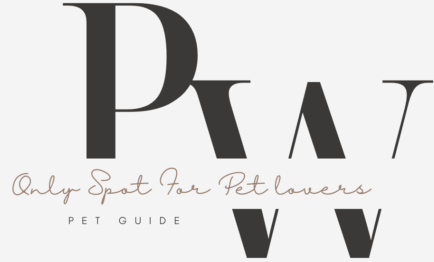

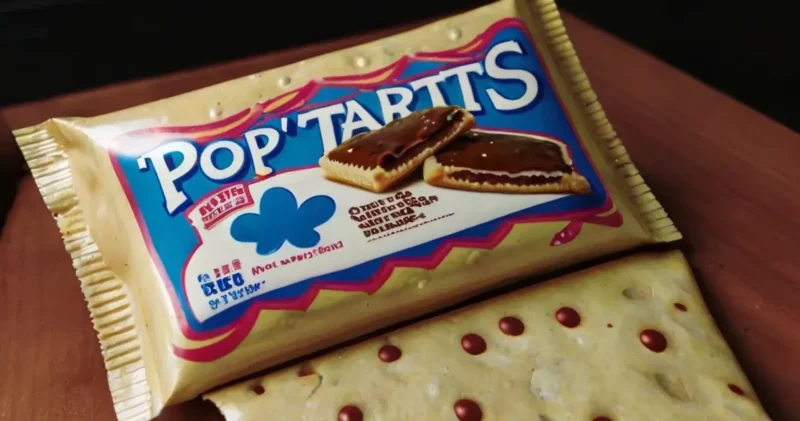
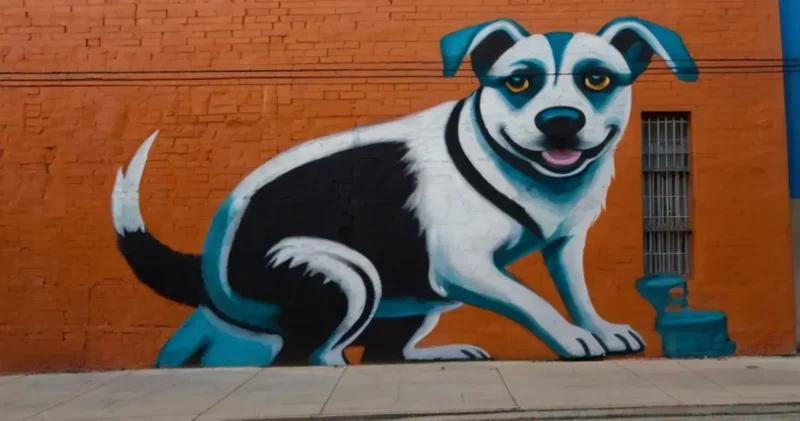
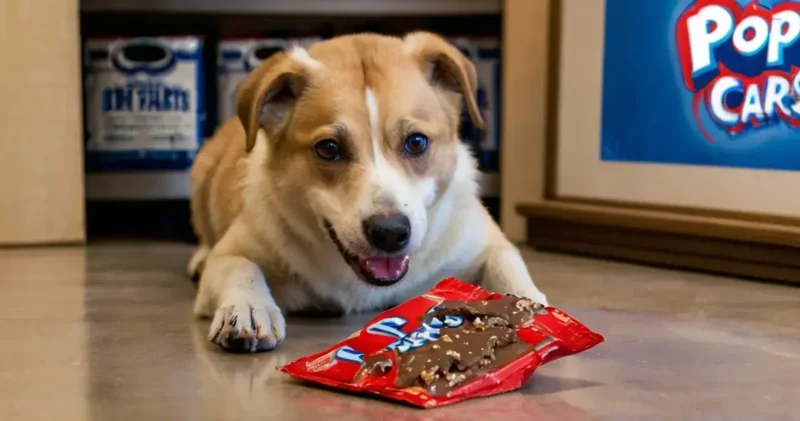
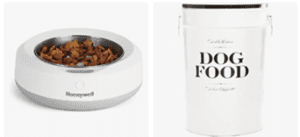

1 thought on “Unleash the Truth: Can Dogs Eat Pop Tarts? 5 Reasons”